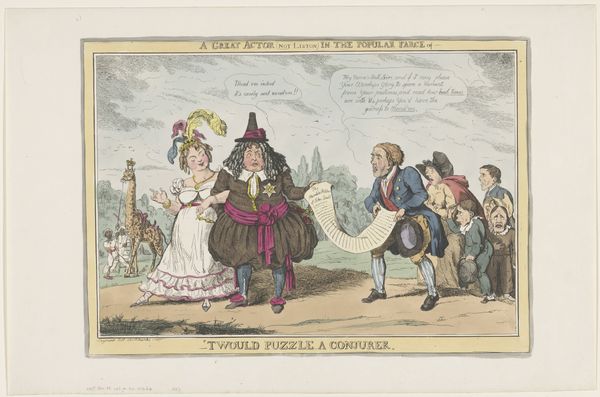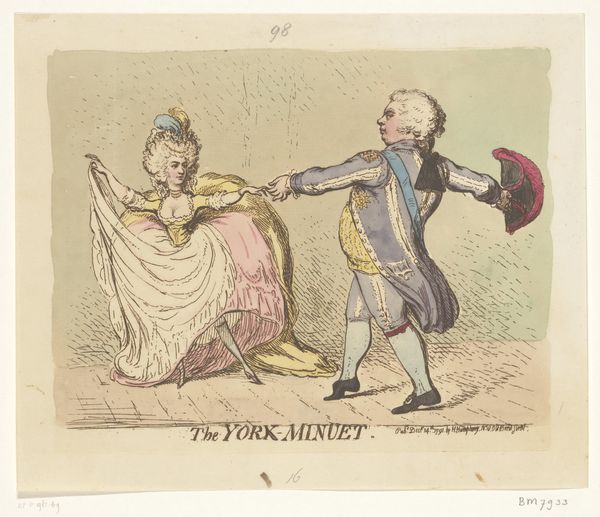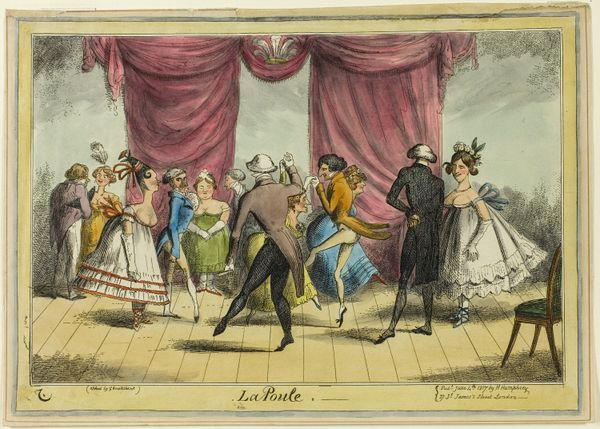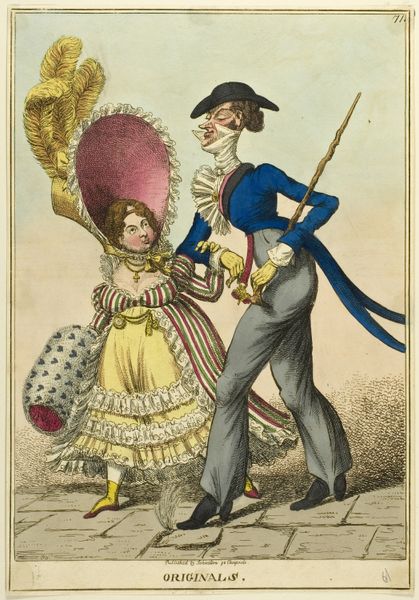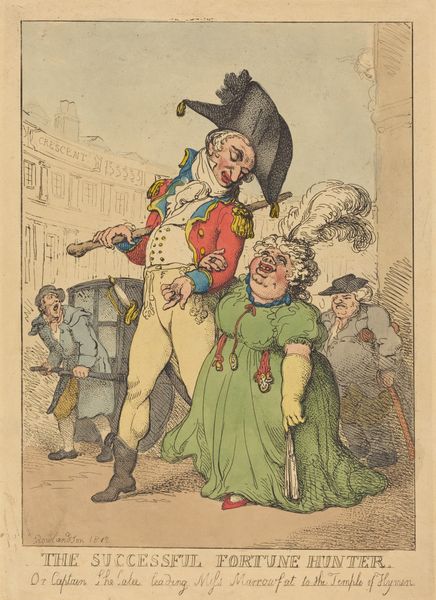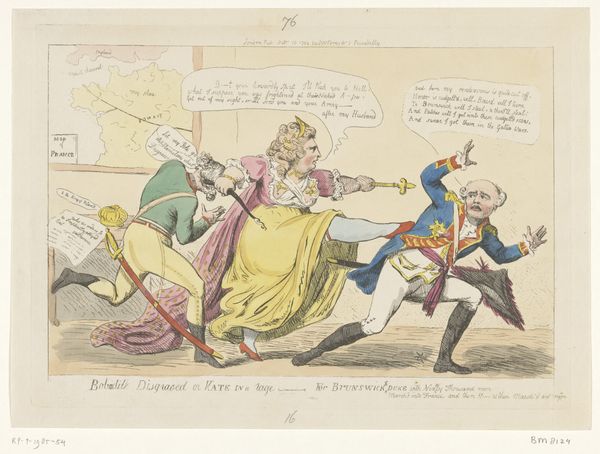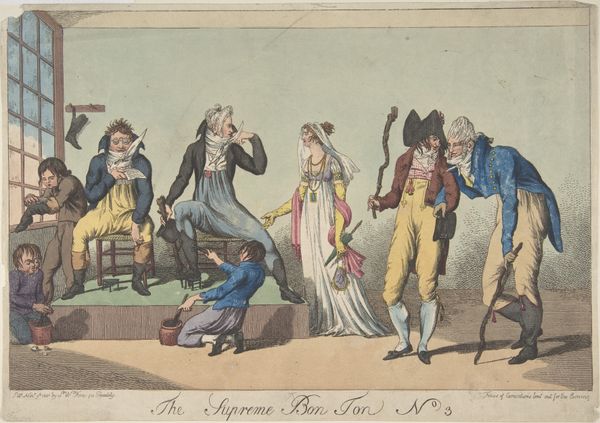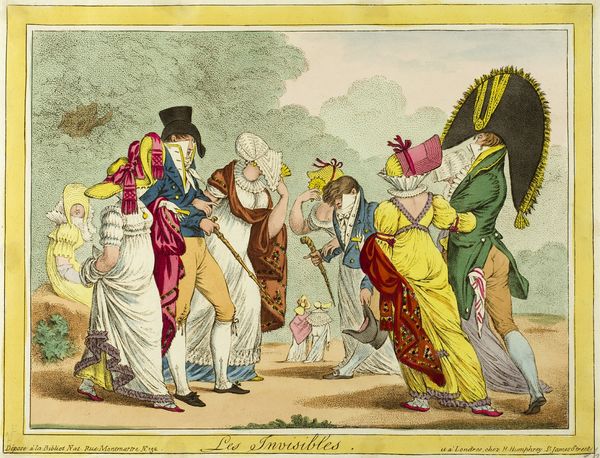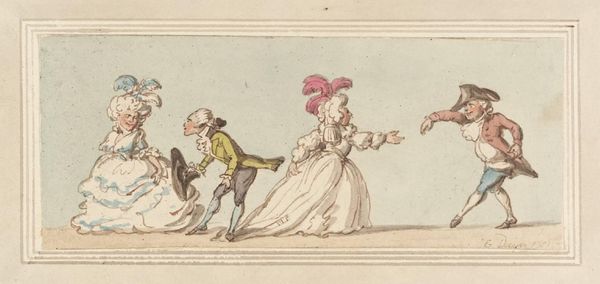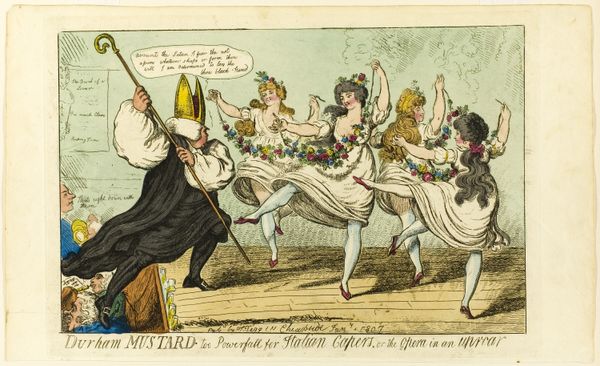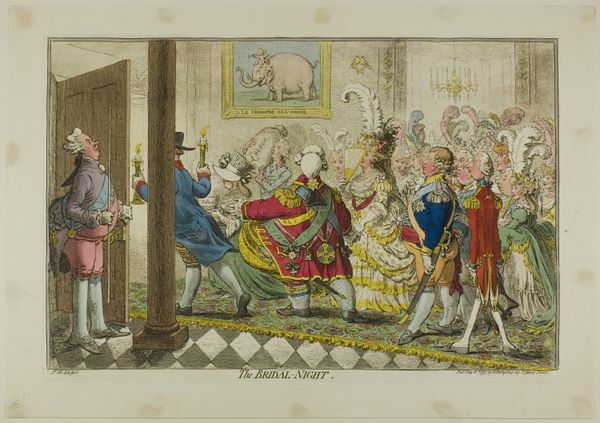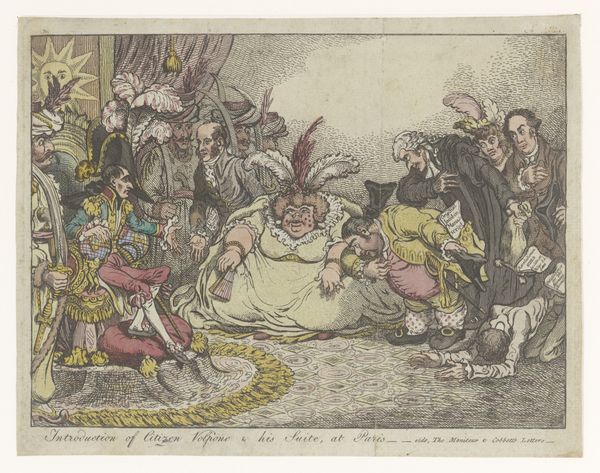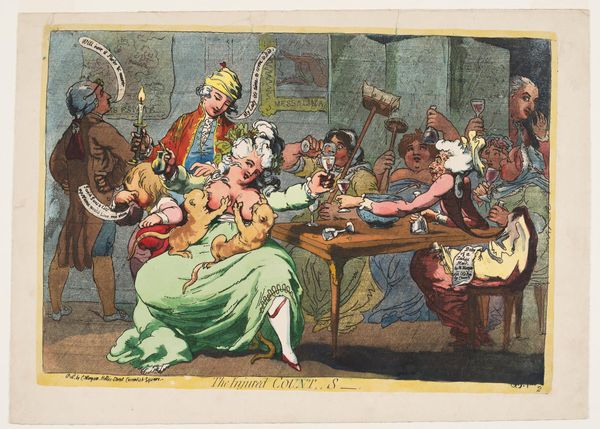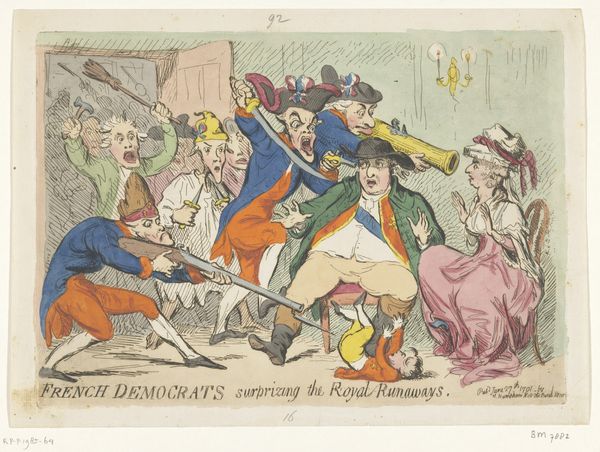
Dimensions: support: 92 x 146 mm
Copyright: CC-BY-NC-ND 4.0 DEED, Photo: Tate
Editor: Here we see George Montard Woodward's "Scene at a Ball." It's a watercolor, and the figures are just wonderfully animated and grotesque. What strikes you about the means of production here? Curator: Woodward's print points directly to the commodification of leisure. Notice the rapid, almost slapdash application of color. This speaks to the speed of production needed to meet the demands of a growing middle class eager for satirical depictions of social life. Editor: So, it’s not just about what’s depicted, but how quickly it could be made and distributed? Curator: Exactly! The etching process allowed for mass production, making social commentary accessible and contributing to a culture of consumption. Editor: I hadn't considered that the artistic *process* itself was part of the commentary. Thanks for making that connection! Curator: It's crucial to remember that art doesn't exist in a vacuum. The materials and methods of creation are often as important as the subject matter.
Comments
tate 10 months ago
⋮
http://www.tate.org.uk/art/artworks/woodward-scene-at-a-ball-t09306
Join the conversation
Join millions of artists and users on Artera today and experience the ultimate creative platform.
tate 10 months ago
⋮
This scene at a masked ball shows a corpulent old woman shaking her fists at a young man. He drops his disguise and flees in terror. Woodward was an amateur caricaturist, who lived in London on an allowance provided by his father. He produced hundreds of caricatures which, while they show his lack of artistic training, provide entertaining insights into the customs and habits of Georgian society. Woodward was himself a dissolute character. He died in penury at the Brown Bear public house in Bow Street, London, in November 1809. Gallery label, August 2004
